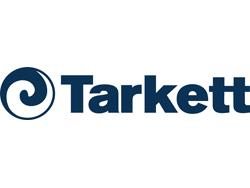Tarkett Unveils New Climate Roadmap
Paris, FR, February 3, 2022-Tarkett announced its new Climate Roadmap for 2030, in full alignment with the Paris Climate Agreement objective to limit global warming to 1.5°C. The company will deliver a 30% reduction in greenhouse gas emissions across its entire value chain by 2030. Today, the independent organization Science Based Targets (SBTi) has started the evaluation and approval of Tarkett's greenhouse gas reduction targets.
Tarkett’s Climate Roadmap for 2030 covers reductions in greenhouse gas emissions from its own activities (Scope 1) and its purchased energy (Scope 2)-as well as those arising from the rest of its value chain, from suppliers to end customers (Scope 3).
The SBTi is a partnership between CDP, the United Nations Global Compact, World Resources Institute (WRI) and the World Wide Fund for Nature (WWF). Science-based targets are designed to keep the planet within its global carbon budget in order to limit the increase of global temperatures and the effects of climate change. The building industry can make a major contribution to resource preservation and the mitigation of climate impact, since it represents around 40% of global GHG emissions (production, transport & incineration) and 60% to 70% of total waste3.
Over the last decade, Tarkett has reduced greenhouse gas emissions by 38% (Scope 1 and 2) and is now accelerating that progress under the 2030 Climate Roadmap. The company has recently achieved a B score by CDP5. This represents the second highest level of maturity a company can reach at the world’s leading climate performance platform, illustrating the strong commitment of Tarkett teams involved in the Climate Roadmap. Greenhouse gas reductions are already being achieved through increased energy efficiency at production sites, renewable energy sourcing and eco-designed products. Through eco-design, Tarkett teams are selecting and using high-quality materials with a low carbon footprint. This approach based on Cradle to Cradle principles diminishes the need for virgin raw materials while reducing the company’s carbon footprint. As part of its circular economy strategy, Tarkett has developed a dedicated flooring take-back and recycling program called ReStart. This program helps customers diverting end-of-use flooring from incineration and landfill, ensuring recycling while reducing their carbon footprint.
Related Topics:Tarkett
